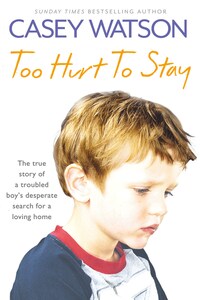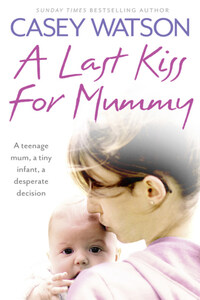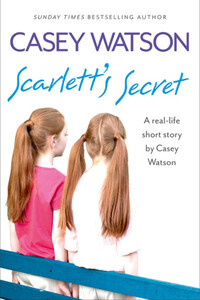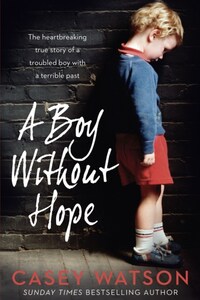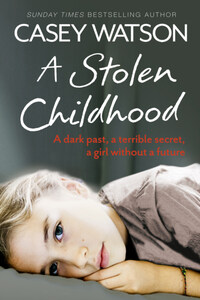Copyright
This book is a work of non-fiction based on the author’s experiences. In order to protect privacy, names, identifying characteristics, dialogue and details have been changed or reconstructed.
HarperElement
An imprint of HarperCollinsPublishers 1 London Bridge Street London SE1 9GF
www.harpercollins.co.uk
and HarperElement are trademarks of HarperCollinsPublishers Ltd
First published by HarperElement 2012
FIRST EDITION
© Casey Watson 2012
A catalogue record of this book is available from the British Library
Casey Watson asserts the moral right to be identified as the author of this work
All rights reserved under International and Pan-American Copyright Conventions. By payment of the required fees, you have been granted the non-exclusive, non-transferable right to access and read the text of this ebook on-screen. No part of this text may be reproduced, transmitted, down-loaded, decompiled, reverse engineered, or stored in or introduced into any information storage and retrieval system, in any form or by any means, whether electronic or mechanical, now known or hereinafter invented, without the express written permission of HarperCollins.
Source ISBN: 9780007436620
Ebook edition © OCTOBER 2012 ISBN: 9780007436637
Version: 2016-10-19
Chapter 1
They always say a change is as good as a rest, don’t they? And let’s face it, who wants to put their feet up and do nothing all day long? Not me.
Which was just as well. It was mid-August, a time of year where rest tends to be high on the agenda, but as I hefted my number one grandson from his car seat, my principal thought was ‘fat chance’.
I didn’t like to admit it, because at forty-three I was young for a granny, but four hours in town with my daughter Riley and her two little ones had exhausted me. Not that I hadn’t asked for it. I’d been itching to spend more time with Levi and Jackson, so I had no business moaning and groaning about it. And besides, I well remembered how tiring it was being a young mum with two little ones to run around after; with Levi almost three now and Jackson just six months old, Riley had her work cut out.
And I remembered how tiring childcare could be better than most grannies, maybe. We’d just said goodbye to our last foster children, and though at ten and seven Ashton and Olivia hadn’t exactly been toddlers, they had certainly been as challenging as little ones. As with all the kids we took, these had been profoundly damaged children, so caring for them had definitely taken its toll.
‘God, I could kill for a coffee,’ I told Riley as we got the kids indoors and settled them in the living room with some toys.
‘You sit down,’ she said. ‘I’ll deal with the drinks.’ But almost as soon as I’d lowered myself and the baby into an armchair with a picture book, the phone rang. Levi shot to his feet.
Which meant I had to be quick. He was three now and his most favourite thing at the moment was to chat on the phone. Needless to say, he beat me to it.
‘Hiya!’ he was babbling into the receiver. ‘Hiya! Lub you!’ Then his usual follow-up. ‘Okay, then. Byeee!’
I gently prised the receiver from him, despite his indignant protests, and hoped whoever was on the end hadn’t already hung up. Happily he hadn’t – it was John Fulshaw, our fostering-agency link worker – though he’d been about to. ‘Thought I’d dialled a wrong number,’ he chuckled. ‘Either that or you were doing a bit of moonlighting. Thought you’d wanted a break!’
‘It’s Levi,’ I told him. ‘And this is my break. Anyway, to what do I owe the pleasure?’
‘My, he’s growing up fast,’ John said. Then he cleared his throat. It was a sign I knew of old. A sign that invariably meant that the tone of the conversation was about to change.
‘So?’ I asked.
‘So, talking of breaks,’ he continued, ‘we…ll, I just wondered how adamant you felt on that front?’
‘Go on,’ I said slowly, while pulling a face at Riley. She was standing in the kitchen doorway, listening.
‘Well,’ John said again, obviously limbering up still, ‘we just wondered what the chances were of you taking on another placement. It’s not going to be long term …’
‘Yeah, right. Heard that one before, John.’
‘No, this time I’m sure of it. The plan here is for the child to be returned home to his family as soon as possible.’
Which seemed odd. My husband Mike and I didn’t do mainstream fostering. We were specialist carers, trained to deliver a behaviour-modification programme that was geared to helping the most profoundly damaged kids. These were kids that were too challenging to be fostered in the mainstream, and for whom the alternative was often the grim option of a secure unit. They’d often been through the system – children’s homes and foster homes – already. We were very much the ‘last-chance saloon’ for these unfortunates, our aim being to give them lots of love and firm boundaries, and in so doing improve their behaviour enough for them to be returned, not to their families – that option was mostly long gone – but to mainstream foster carers. That was what had just happened with Ashton and Olivia. So this situation was odd.
